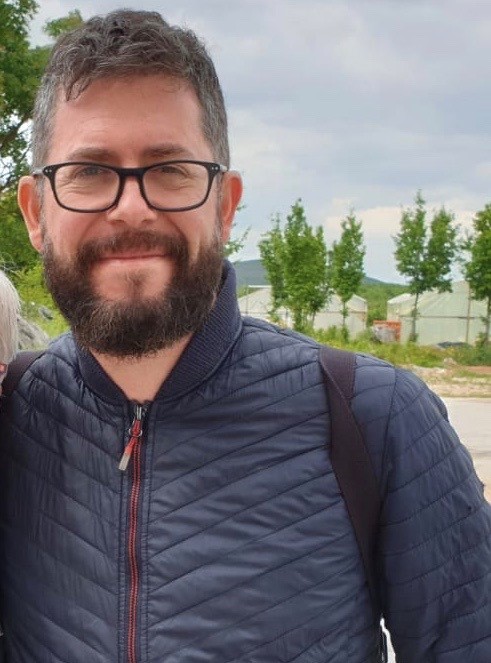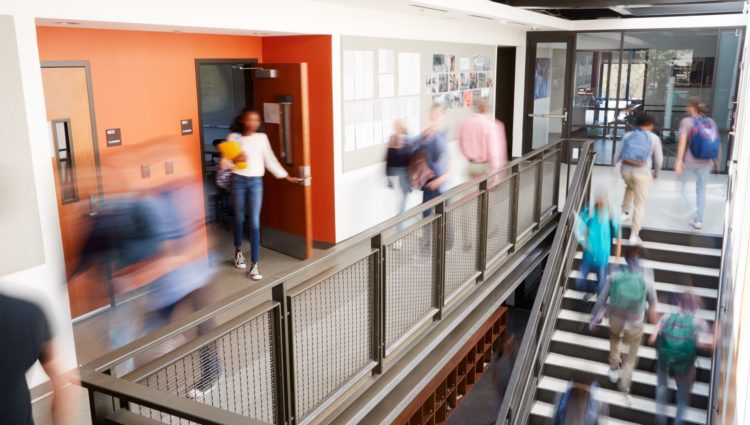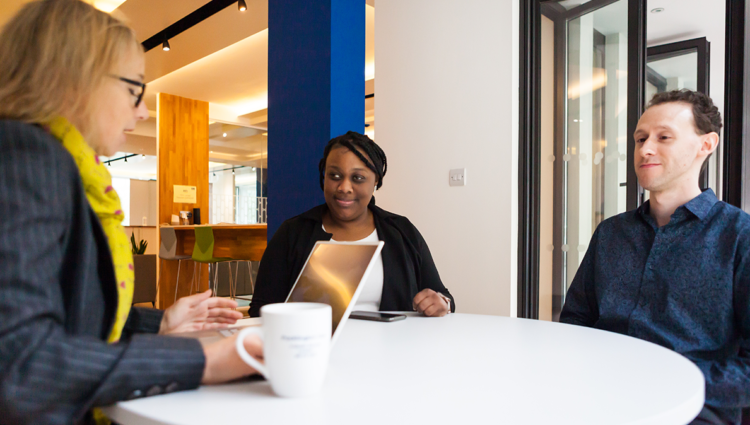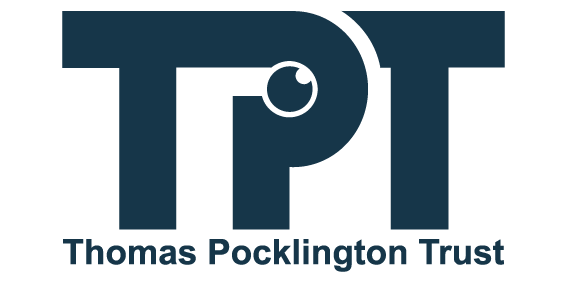“The right support at the right time opens doors and improves the student’s wellbeing and potential to achieve.”
Surrey County Council’s Physical and Sensory Support (PSS) is a targeted specialist education service. Within this is the Further/Higher Education 16+ (FHE16+) team which has more than 20 student support workers, BSL interpreters and advisory teachers for sensory impairment.
James Fitzgerald is the Professional Lead for this team. We caught up with James to find out about the service, the role of specialist support and the important factors in delivering good support.

The service
The FHE16+ service provides a range of support for blind and partially sighted (BPS) students over the age of 16 who are studying in Further and Higher Education (FE and HE). Colleges ‘buy in’ this specialist support for their students as this is a non-statutory council service. If a student’s support is recommended in their Education, Health & Care Plan (EHCP), the college claims back the cost of this support from the local authority.
The team collaborates closely with the PSS’s pre-19 team, which works with children and young people in schools. Its involvement begins through contact from the college/FE setting or via a handover from the pre-19 team. They are involved from the beginning of the student’s journey through FE – liaising with the student and college to establish the right support for the student. The two departments start liaising mostly from Year 9, getting to know the young person to ensure EHCP vocabulary is correct and that the transition into FE is as smooth as possible.
The FHE16+ team can provide notetakers, modify classroom learning resources, review EHCPs and monitor the student’s progress and adequacy of support provision.
Transitions – working together
When a student transitions from school to an FE setting in the same county (Surrey), the FHE16+ and pre-19 teams collaborate to make the move as smooth as possible. Good communication between them is crucial.
James explained: “It’s a three-way approach really – working with the pre-19 team, schools or parents and also directly with the colleges.
“You need all these working together and encouraging independence in the student. When that’s in place, the student is better equipped to embrace adulthood and is in a better position to achieve in their education and therefore in employment at a later stage.”
For many students, studying at FE will be a significant adjustment in independence and responsibility compared to a more supported school setting. James believes it is essential to discuss this with the student and how their support will fit in with their studies before their course begins.
He also stresses the importance of building relationships with colleges so the student has the best experience when transitioning into FE: “The college often doesn’t have the expertise to support a vision impaired student, so they rely on us to provide that support and to advise. When we have worked with a college before, they know what we can provide. Having that ongoing positive relationship can really help.”
Emphasising the importance of specialist support in further education
Having worked with deaf students in FE and HE for 20 years before moving to his role in 2019, James understands the importance of specialist support and the value of expertise: “Colleges may be inclined to provide in-house support to a BPS student, underestimating the level of specialist skill and knowledge required.
“Support work isn’t just scribbling notes down for someone, it’s actually a professional role requiring a specialist skill set.
“It can be a challenge to explain diplomatically to colleges that they also have a duty to make reasonable adjustments. It is not enough to bring in someone just to sit next to the student and take notes.”
Getting the EHCP right
Inadequate and poorly written Education, Health & Care Plans (EHCPs) are a common reason for BPS students not receiving the right support.
James commented: “Sometimes EHCPs are not clearly written. The actual support that a student needs is not properly stated or is too vague.”
If an EHCP states that a student should have a ‘notetaker’ rather than a ‘specialist notetaker’ with experience of supporting BPS students, a college may use an in-house Learning Support Assistant (LSA) instead or may overlook the support requirements because the EHCP report is poorly worded or doesn’t contain enough information.
James added: “It is frustrating when you come across an EHCP that is inadequately written and you know that the student has been through college without the level of support they could’ve had.”
Conversely, a well written and robust EHCP can make all the difference. In a recent case, the service advised on the review and improvement of a student’s EHCP. James explained: “This made a big difference to the student. She feels a lot more empowered and able to get the support she needs to achieve. Previously she felt she was at the mercy of the system, rather than having any sense of control over it.”
Invest in your team
When asked what he has learnt since joining the service, James immediately answered that he is more aware of the value of Qualified Teachers of Vision Impairment (QTVIs), Advisory Teachers and having staff who are qualified in supporting students with sensory impairments.
He said: “I have learnt that having somebody with the mandatary qualification in sensory impairment (ToD/ ToVI) gives them experience and skills in the whole cycle of a child and young person’s educational life. Even if they are supporting a student in a post-16 setting, it is of huge value that they understand the school setting too and are able to work in the transition stage.”
The best advice he could give to other support services is: “Invest in your team. Make sure your team have good access to continuing professional development (CPD), share good practice with each other and update their knowledge and skills regularly so they are well informed and able to respond to changing demands. This includes changes to technology, support strategies and new ways of delivering support (eg remotely during a lockdown!).”
The majority of the Surrey PSS service’s team hold a LASER qualification, a recognised level 3 qualification in specialist notetaking for both vision and hearing impairment.
What is at stake
We asked James what he thought the most significant risk was if a student doesn’t receive the right support at FE, he said:
“The student is at risk – their life opportunities, ability to achieve their potential and get the education that is their right. If they come up against barrier after barrier, not getting the support they need, they receive a negative experience of education and learning. At a crucial stage in their personal and educational development, they will be disadvantaged rather than inspired and empowered. And this is likely to affect their prospects for employment and life as well as their mental wellbeing.
“The importance of ensuring a student with vision impairment receives the right support cannot be overstated. The right support at the right time opens doors and improves a student’s wellbeing and their potential to achieve.”






